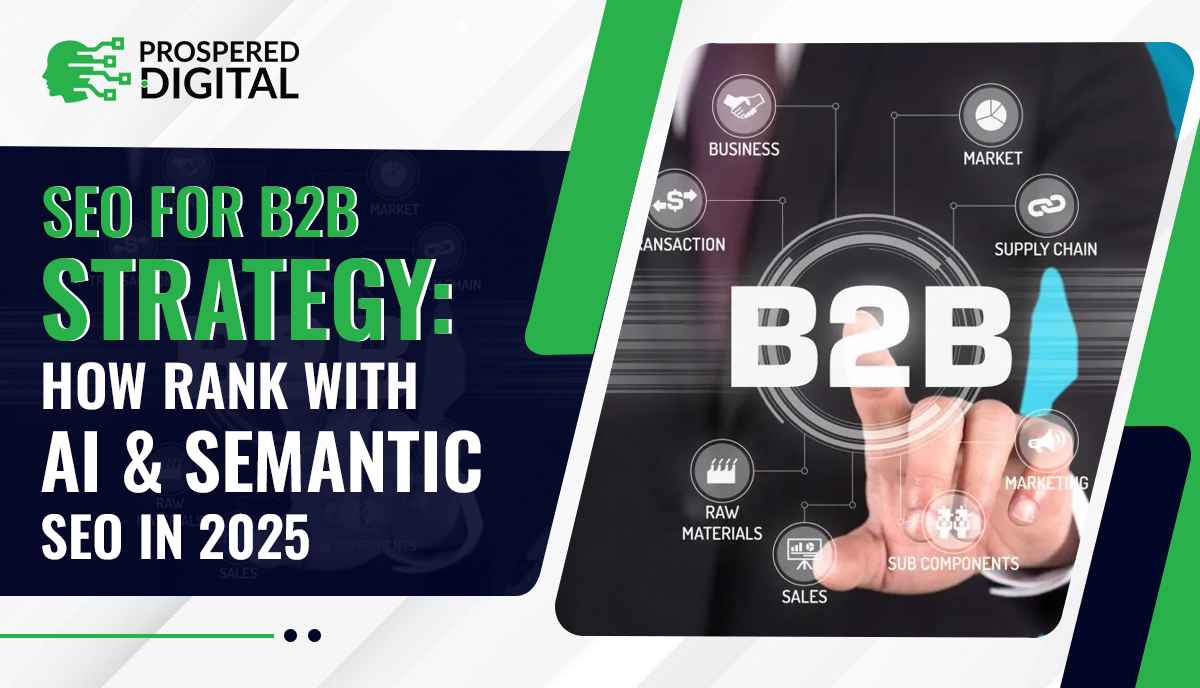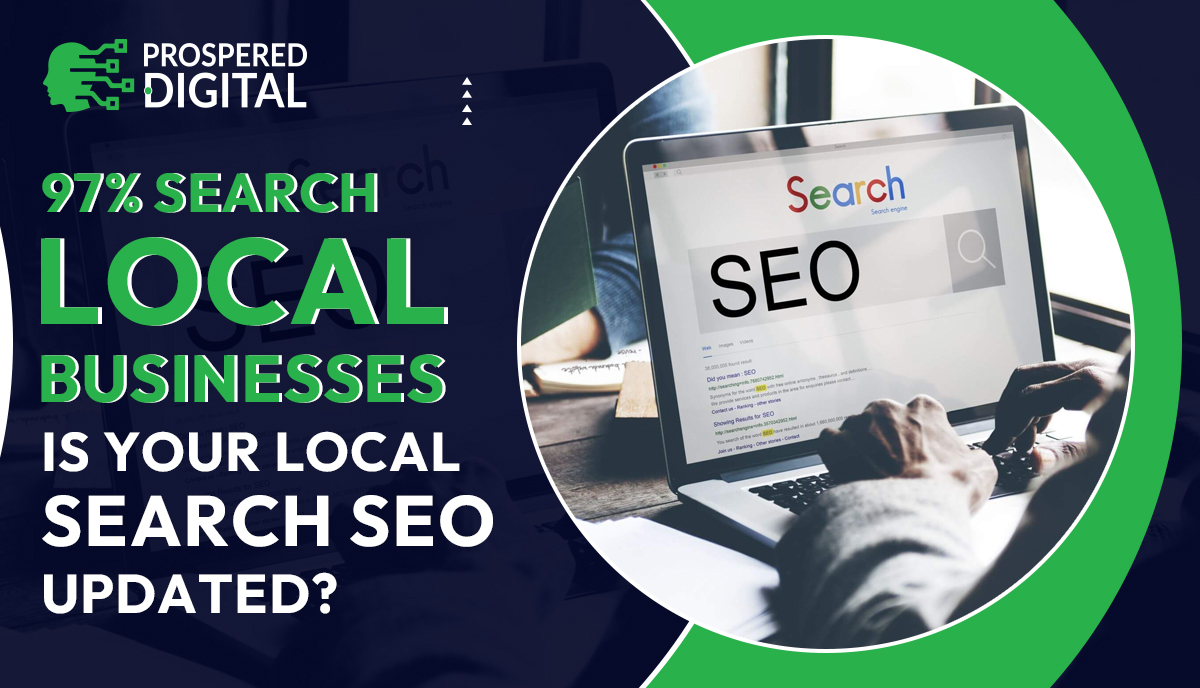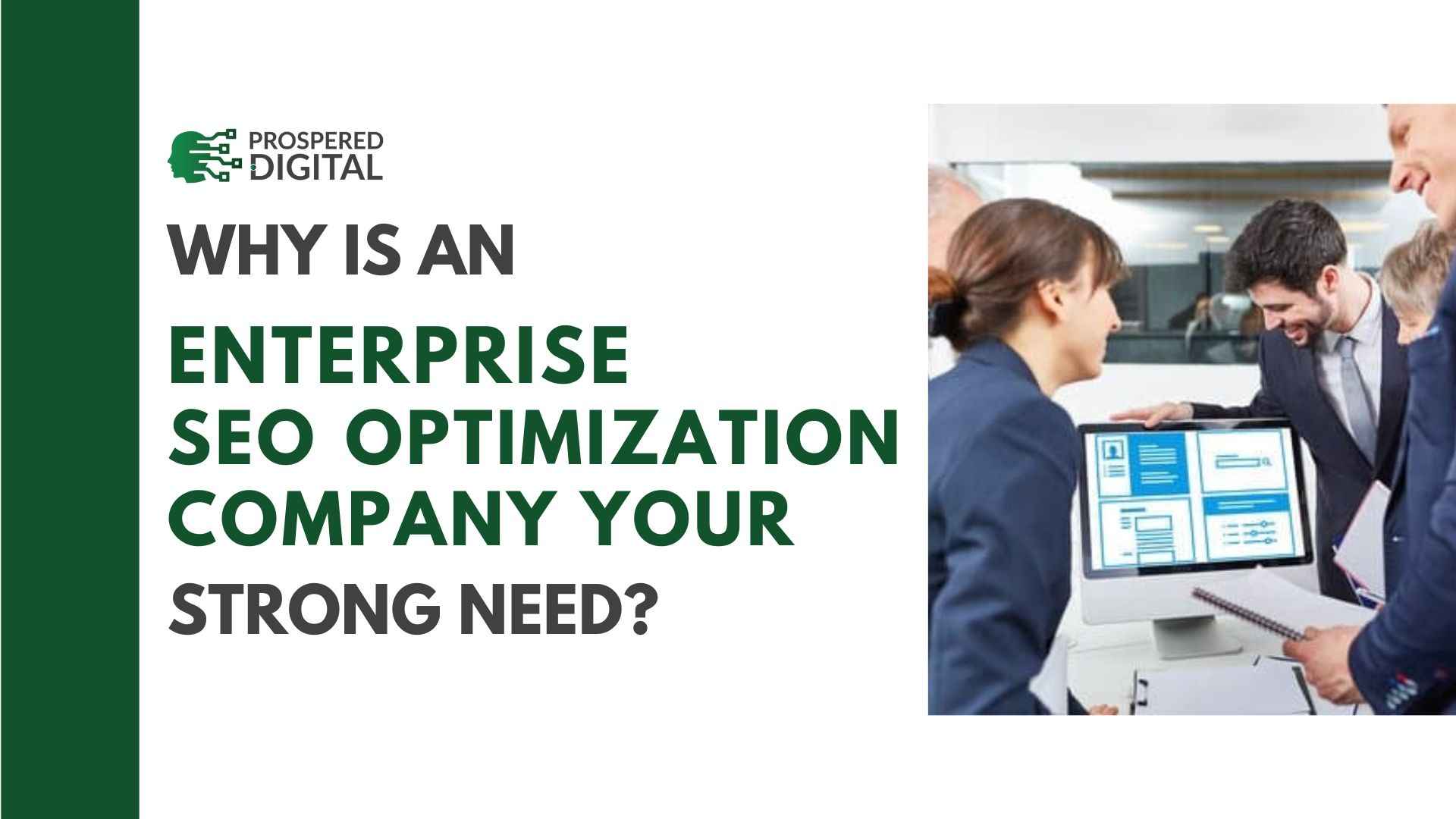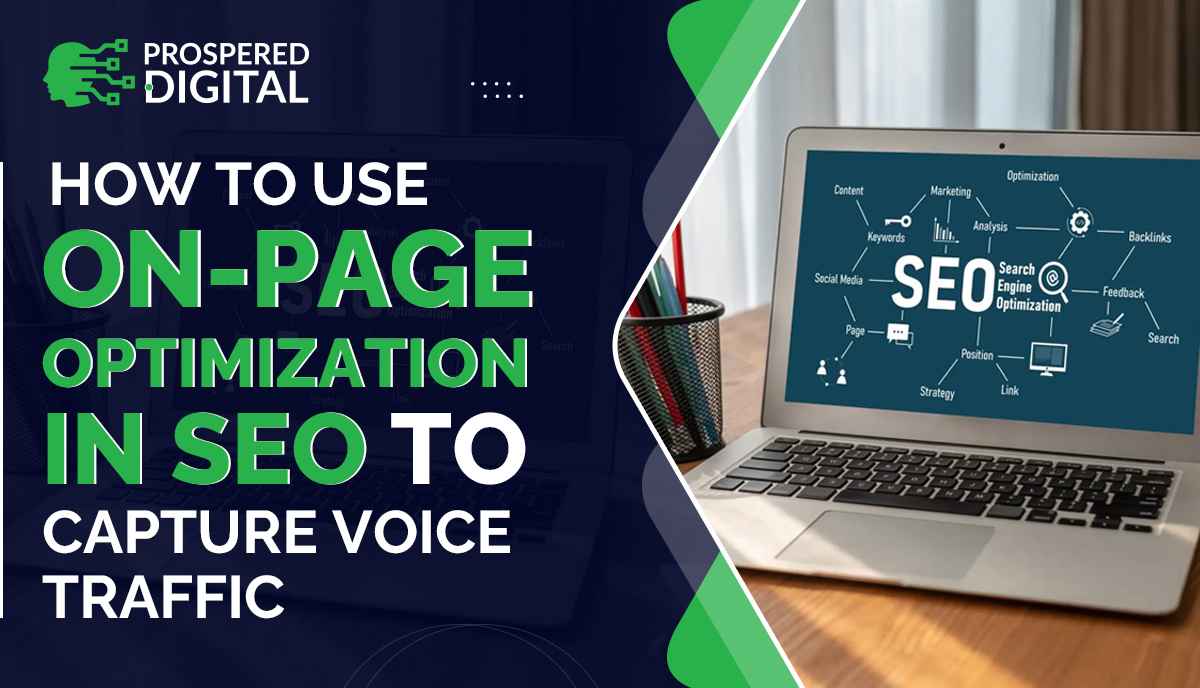The contributions of SEO for B2B Strategy in the year 2025 is the emergence of new trends including the use of artificial intelligence together with the semantic SEO. These innovative techniques, along with insights from Top Ad Agencies in New York, offer businesses advanced methods to enhance their online presence and stay competitive. Semantic SEO and AI help B2B organizations maintain their competitive advantage and satisfy the demand for the required solutions. This article also provides the definition and foundation of AI and semantic SEO, the processes in place, and practices incorporating these strategies.
Understanding AI In SEO
AI SEO involves utilizing algorithms and even machine learning to improve many of the processes involved with SEO. Contrary to manual keyword research and optimization keyword tools based on artificial intelligence work with extensive data sets, forecast tendencies, and perform monotonous procedures.
How AI Enhances SEO for B2B Strategy
- Advanced Data Analysis: The various AI tools include the users’ behavioural patterns analysis, the tendency in the frequency of the searches made by people, and the competitors’ actions. This also assists the business, Enterprise SEO optimization included, to know their target market better. For better data analysis I recommend the blog on the best AI tools for SEO by backlinko.com. This is a very authentic website and has good information related to this topic.
- Intent Prediction: AI determines what users are looking for and for what purpose, thus it perfectly places content accordingly.
- Content Automation: AI makes writing easier by offering ideas for the post, the keywords to be used, and how to optimize it.
- Dynamic Personalization: Through dynamic content creation, AI enhances content relevance about a user’s intent and search behaviour, thereby increasing engagement.
To B2B companies, AI demystifies search engine optimization services for small businesses as well as enterprise-level solutions for growth, making it easier to scale them.
What is Semantic SEO?
Semantic SEO is different and more elaborate than keyword-matching with search queries, it considers the nature and the hierarchy of these queries. This approach helps to make the content complete and relevantly corresponding to the user’s practical interests or intentions.
Key Features of Semantic SEO
- Contextual Understanding: Search engines determine the semantic meaning of the word and its connection to the content.
- Entity Optimization: Search engines locate topics, individuals, or brands and affiliate these items with other related searches.
- Topic Clusters: Semantic SEO focuses on linking related articles together in the hope that by providing in-depth information on the subject, it would rank high on the search engines.
For instance, when aiming at ‘enterprise SEO optimization,’ it also covers topics such as ‘on-page optimization in SEO,’ and ‘affordable search engine optimization company,’ among many others, making a strong topical map.
The Compatibility Between AI & Semantic SEO
When used together, AI and semantic SEO dramatically advance SEO for B2B strategy by guaranteeing the content is semantically relevant while following SEO best practices.
- Semantic Keyword Research with AI: SEMrush and Ahrefs are some of the AI tools that help determine related keywords, help in understanding semantic SEO and create content hubs.
- Content Alignment: AI provides recommendations that enhance the relevance of the content to the search intent that users, searching for such keywords as ‘local SEO marketing companies’ or ‘organic search engine optimization company’.
- Automated Optimization: AI handles routine work like internal linking and generating of meta tags so that search engines can understand relationships.
Apart from the ranking factor, this strategy helps companies claim their authority in specific market segments.
Step-by-Step Guide To Implementing AI & Semantic SEO
Step 1: Identify Your Target Market and Objectives
Elements for developing an SEO for B2B strategy include learning about the target audience’s needs and search activity.
- Use AI-powered tools.
- It is important to divide your audience according to what they need and what they have input in.
- Find out keywords relating to your speciality services like cheap SEO companies, cheap SEO companies, affordable SEO companies, and so on.
Step 2: Carry Out Semantic Keyword Study
Do not just concentrate on the basic keywords, sample other words and phrases to improve on context.
- Primary Keyword: The primary keyword should be the focus pillar of your content.
- Secondary Keywords: Use a couple of terms such as ‘digital dominance graphics’, ‘Google search engine optimization companies’, and ‘search engine optimization services for small business’ blended into subtopics.
Step 3: Use Content That Relates To a Given Context
Introduce content material that would answer the direct questions asked as well as other related questions. For example:
- An article, “On-page optimization in SEO” could contain tags like “enterprise SEO optimization company.”
- FAQs should be used to answer specific user questions while using the keywords as much as you can.
Step 4: Use AI Tools For Optimization
Tools that analyze content for search intents, such as Surfer SEO and MarketMuse, can be helpful. They provide:
- Guidelines on the proper placement of the keywords as well as keyword frequency.
- The ability to know competitors’ actions about similar keywords like “cheap SEO company” or “SEO outsourcing company USA.”
Step 5: Implement Structured Data
- Making your content readable to search engines is made possible by appropriately structured data.
- Employ the services such as “local SEO marketing companies” or ‘affordable search engine optimization’ and incorporate schema markup.
- It is worth noting that using AI tools there are options to auto-generate schema code for such forms too.
Step 6: Develop Topic Bubbles & Links Between Them
- Categorize your website content into subject areas to create content clusters about the topics.
- Link up relevant pages for proper crawling and to address subjects such as ‘business SEO optimisation’.
- Make sure other articles from the website add value and offer related content to the users.
Step 7: Pursue Current & Ongoing Quality Enhancement
- Use AI analytics applications to analyze performance levels and make future improvements based on strategies.
- Check with great detail the main figures such as organic traffic, number of bounces, or direct conversions.
- Include predictive analysis so that content is created to help the firm post the forecasting period.
The Importance of Affordable SEO In B2B Approach
Budget limitations are commonly experienced in the B2B environment. Now, even small firms can address the SEO for B2B largely due to the availability of affordable solutions and the adoption of AI tools.
Affordable Search Engine Optimization: Services such as Rank Math, as well as SE Ranking, may help in keyword monitoring and can be relatively inexpensive.
Collaboration with Budget-Friendly Companies: It is advisable to get help from an affordable SEO company in USA or a cheap SEO company to have the services done by the financial capacity.
Advantages of AI & Semantic SEO For B2B Strategy
-
Improved Ranking and Visibility
AI helps deliver content that meets the expectations of users, while semantic SEO helps organizes the content to match users’ and search engine expectations.
-
Improved Lead Quality
Doing so will help target professionals actively seeking services based on specific terms such as SEO outsourcing company USA or organic search engine optimization company without marketing interference.
-
Scalable Results
AI can save time and prevent redundancies, also SEO campaigns can be easily replicated for other campaigns or even for local SEO marketing companies or small businesses.
Conclusion
AI and semantic SEO are the important key aspects of the great future of SEO for B2B strategy in 2025. Therefore, by covering their principles and processes, businesses may come up with relevant contextual content that meets the buyer’s intent and performs better than their rivals.
Whether you are an enterprise SEO optimization company or a small business looking to improve visibility, utilizing AI and semantic SEO guarantees higher rankings, better engagement, and enduring success within the digital space. Start applying these strategies now to place your website in the most favourable position on the search engine rankings.





